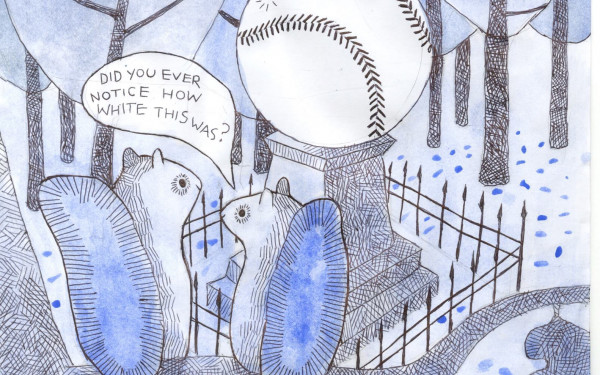I will miss you, José
I still can’t really believe it.
As I do every Sunday morning in the fall, I skimmed through the headlines after a particularly eventful Saturday of college football.
Somewhere in the jumble of articles about upset losses and head coaches poised to be fired, I saw one headline that certainly had to be click-bait; Miami Marlins’ 24-year-old Cuban ace José Fernández had passed away.
I immediately clicked the link, still totally expecting it to redirect me to an online poker website, or some fake page selling me anti-virus software.
But no, it was true. Multiple reports had confirmed that José had died early Sunday morning in a boating accident down in Miami. A few hours earlier, I had been thinking about how he was slated to pitch against my New York Mets Monday evening, a game that the Mets really had to win to keep their playoff hopes alive. The Mets were 0-6 in games started by José in 2016, and would probably have lost that game because José would have been on the mound.
Then, he was gone.
José’s story was almost as incredible as his talent. As a teenager, he and his family attempted to escape from Cuba on three separate occasions before finally succeeding. He was sent to jail after each failed attempt. Finally, in 2007, they managed to reach Mexico and successfully defect from Cuba.
During that 2007 escape, José’s mother fell overboard when their boat met some adverse weather conditions. José was the one who saved her from drowning—a tragic twist of irony.
Six short years later, Fernández made his Major League Baseball debut against the Mets on April 7, 2013 at age 21—an unusually young age by baseball standards. Normally, when your opponent’s pitcher happens to be making their major league debut, you expect to easily take advantage of his lack of experience and breeze to an easy win.
Instead, José was fabulous. He threw five innings, allowing three hits and one run, as well as striking out eight Mets hitters. Eight strikeouts…in just five innings!!!
I was so relieved when the Marlins finally took him out of the game to avoid tiring him out, but I was terrified about having to face him eight times a year for the next 15 seasons. From his very first start, we all knew he’d be dominant.
After a start in 2013 against their in-state rival Tampa Bay Rays, their former manager and current Chicago Cubs manager Joe Maddon tweeted out: “Jose Fernandez might be the best young pitcher I’ve ever seen, at that age. I believe he will go far.”
José could blow you away at 95 miles per hour, or put you to sleep down at 88 miles per hour. Either way, you would end up looking like someone who just got pantsed by their older sibling. And after he did so, he would walk off the mound with the widest smile on his face, in open defiance of the supposed standards of behaviour for major league pitchers.
Nobody, not even the purists, minded. He was José, he was dominant and was so much fun to watch. Even if he was pitching against your favorite team.
He was a hero to the young Cuban-American children in south Florida and all across the United States. He gave an entire community hope. His story, and his ability inspired anybody, even people who didn’t care for baseball.
Every fifth day, he made people tune in to the Miami Marlins, a franchise that has not made the postseason since 2003—just to watch the Cuban fireballer pitch.
On Sept 25, 2016, we lost a shining star in the world of sports.
I will miss you, José.

_820_616_90.jpg)


3_600_375_90_s_c1.jpg)

_600_375_90_s_c1.jpg)
1_600_375_90_s_c1.jpg)